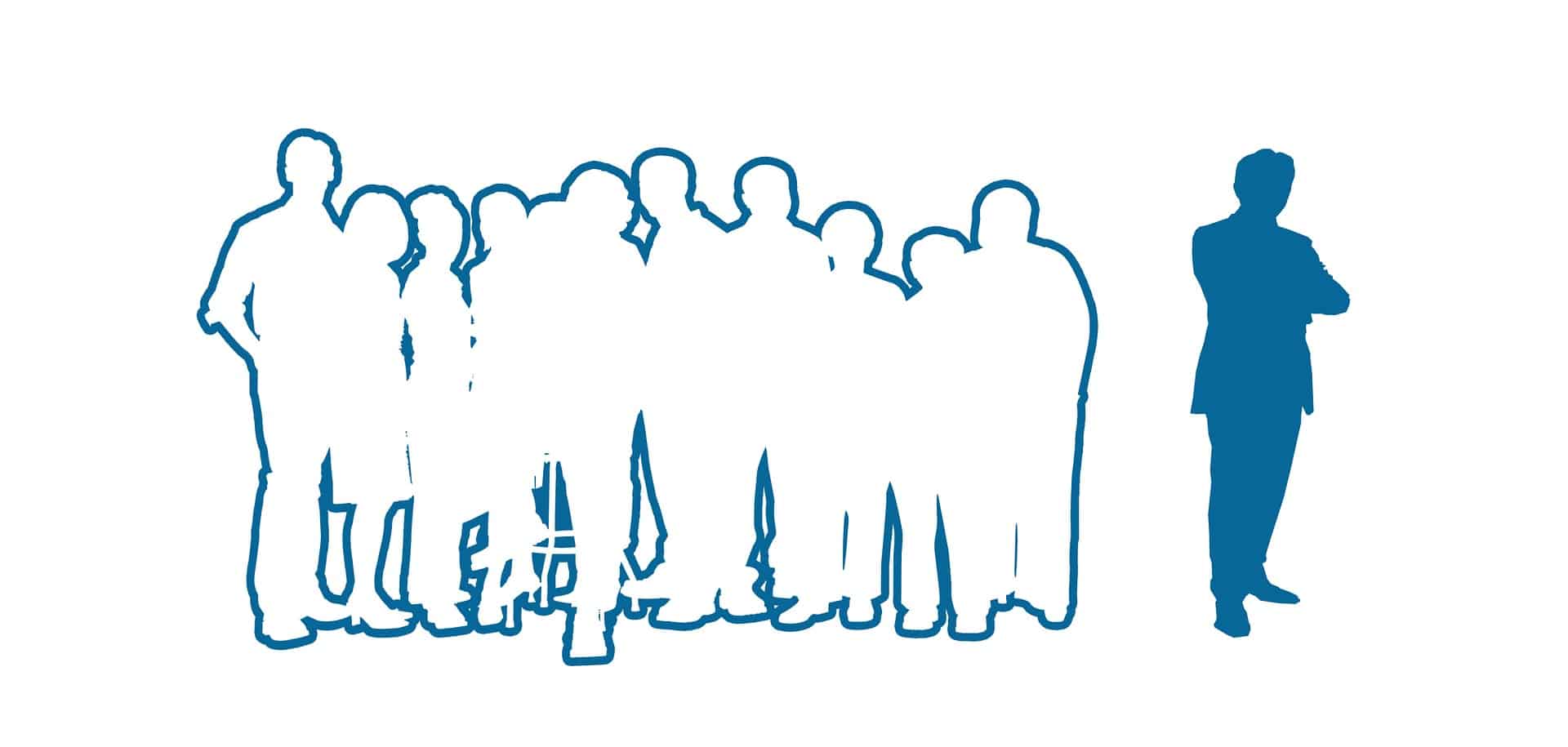Peer pressure in relation to Islam
Peer pressure refers to when a person feels compelled to go against their moral values because of other’s influences or the behaviour of a larger majority of people. The dictionary definition of peer pressure is, ‘a feeling that one must do the same things as other people of one’s age and social group in order to be liked or respected by them’.
We can see it as a kind of ‘influence’ that starts very young in age. There are two types of peer pressure: explicit and implicit. An example would be a youth who dressed a certain way, but after starting school, starts dressing the same as everyone else. The explicit reason could be if someone had openly made fun of the way the youth was dressing, whilst the implicit reason could be if they themselves had made a decision that dressing like everyone else would help them fit in and be liked.

In Psychology, there is a concept of ‘following the herd’, that we can see reproduced in many experiments and research in time. It generally makes us uncomfortable to go against the majority, and there is a certain ‘pressure’ to conform. There is also a survival instinct hardwired into the brain, because in the past going against the norm may have resulted in death; thus we automatically try to avoid going against ‘the herd’, in order to survive and all the difficult feelings that go with it.
Social conformity is a phenomenon that can see people go against their own judgement or reality in order to avoid being ridiculed. Obedience is another example of this, but in the case of obedience, the order comes from a person in higher authority, and generally the minority feel that they have less power and knowledge than the authority figure.

In the stories of the Prophets we can see many examples of peer pressure, which are great lessons even in today’s world.
Especially in the case of Noah AS, who was sent by Allah SWT to people at a time when polytheism was rife and idol worship was the norm. Though Noah AS eloquently and patiently delivered the message of how there could only be one deity; only the poor, weak and miserable followed him, as his message gave them hope and they were inspired by the mercy of it. The rich and influential did not want things to change, and they ridiculed Noah AS with regards to the status of those who had chosen to follow his message.
They then changed to a different tactic, asking Noah AS to cast off those believers who followed him in order for them to follow him, but Noah AS abstained from this request, knowing that status is nothing in the eyes of Allah SWT and spoke to them:
“And O my people! I ask of you no wealth for it, my reward is from none but Allah. I am not going to drive away those who have believed. Surely, they are going to meet their Lord, but I see that you are a people that are ignorant.
And O my people! Who will help me against Allah, if I drove them away? Will you not then give a thought?
And I do not say to you that with me are the Treasures of Allah, “Nor that I know the Ghaib (unseen); “nor do I say I am an angel, and I do not say of those whom your eyes look down upon that Allah will not bestow any good on them. Allah knows what is in their inner-selves (as regards belief, etc.). In that case, I should, indeed be one of the Dhalimun (wrong-doers, oppressors, etc.).”
Qur’an 11:29-31
Noah AS continued with his message night and day, for nine hundred and fifty years, with his people constantly rejecting him and each generation teaching the next generation not to believe in Noah AS’s message.

Finally, as Noah AS was instructed by Allah SWT to build a ship, he stopped calling people to the message, and was then mocked and ridiculed for the construction. Not only were his people against him, but his own wife and son rejected him and the message. It was a very solitary mission, but he endured – Allah SWT brought him success for his steadfastness, rewarding him for his perseverance.
There is an important message for us to learn – not to give up in what we truly believe, even if everyone including our own family is against us, when trying to do what Allah orders and pleasing Him (also highlighted in the story of Prophet Abraham AS). We see many cases of people struggling to resolve, advise and consult their own families, even when they know that what they are being taught is wrong and displeasing.
The Prophet ﷺ faced this problem when he called his own people to the message and although renowned for his honesty, he faced ridicule and physical abuse during his time of delivering the message. He was also steadfast, and had some strong and faithful people by his side for support, including his wife Khadijah RA, who was the second person to accept Islam. We learn here how important it is to surround ourselves with good company, and those who support us in what we believe, because it takes great strength and belief to stand alone.

Being well versed in knowledge, and understanding the root of what we believe in, makes it easier for us to abide by and stay strong in our morals and our belief in Allah SWT. Therefore we learn how educating ourselves is an important part of our Deen (religion), and a way of protection from peer pressure. The ultimate safeguard is a deep trust in the truth, and that Allah SWT will guide us and bring us ease.
Have you been in a situation where you felt peer pressure for what you believe in or stand for?





Maash Allah, beautifully written and explained. Jazakha Allah khairan.
We are so fortunate and blessed that we have the Quran and the role model Muhammed PBUH, providing us with advice. One key hadith, I love to remind my self and others :
The Blacksmith and the Perfume seller
The Prophet (salAllahu alayhi wasalam) said:
“The likeness of a righteous friend and an evil one, is the likeness of a (musk) perfume seller and a blacksmith. As for the perfume seller, you may leave his shop smelling of fragrance, or you may purchase something from him, or you may benefit from his sweet smell. And as for the blacksmith, he may either burn your clothes, or you may be exposed to his awful smell.”
[Bukhari and Muslim]